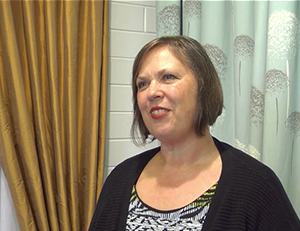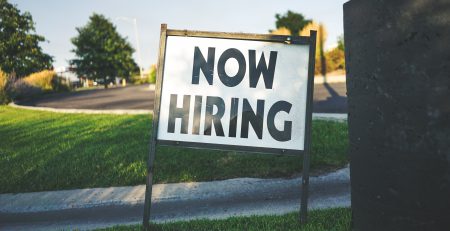Back to work in COVID-19
As each Australian state begins to relax lockdown restrictions, reopening the workplace and getting back to work in COVID-19 is on everyone’s mind. The feeling of freedom and the sense that we are moving closer to normality is exciting.
However, it’s important to remember that COVID-19 has not gone away.
So, to ensure we move through these difficult times in a healthy way, small business owners must create a safe environment for customers and employees. Developing safe work practices and changing your daily operations to keep everyone safe is essential to re-open and stay open.
Put a plan together
As a small business owner, planning out how you and your staff are going back to work in COVID-19 is a great first step. Your plan should outline how you are going to inform your staff of safe work practices, prevent infection, respond should you have a COVID-19 case and how you plan to recover.
SafeWork Australia has a fantastic checklist outlining steps you can take to make your small business a safe space to work. Read through this carefully and address each step where relevant.
The most prudent advice at this stage is to give responsibility to an individual – whether this is yourself or a senior employee – to take charge to apply and monitor new workplace practices. This person should keep up to date with the latest government advice and be the source of COVID-19 knowledge and best practice.
Each state has its own advice on getting back to work in COVID-19. So to make it simple, here is a state by state breakdown of available guidelines and resources.
Back to work in COVID-19 by state
Australian Capital Territory
The ACT encourages employers to consider alternative methods of doing business. So whether this is online ordering and payment or working from home where possible, going back to work in COVID-19 requires redesigning business practices.
To keep workers safe the ACT advises:
- Homeworking
- Physical distancing of 1.5 metres
- Washing hands for 20 seconds with soap and water or use an alcohol-based hand sanitiser
- How to spot COVID-19 Symptoms quickly
- Regular cleaning of the workplace
In addition to the physical risks, small business owners should also consider the mental health of their workers and how they can minimise workplace stress.
Tips to consider include:
- Stay informed and share relevant, factual information
- Provide staff with a point of contact
- Inform workers of their entitlements should they become unfit for work
- Support staff and identify those who may be more at risk
- Refer workers to relevant channels that support mental wellbeing in the workplace, such as digital mental health services that can be accessed online
Northern Territory
The Northern Territory stresses that employers must have measures in place to both manage and eliminate risks around going back to work in COVID-19, under the work health and safety laws.
On the roadmap within the ‘New Normal Business Restart’ NT requires businesses that were closed due to COVID-19 restrictions to complete a COVID-19 safety plan to be able to reopen. By completing the online COVID-19 Safety Plan checklist, relevant to your business or organisation, you will be able to demonstrate how you plan to meet the required physical distancing and hygiene rules.
Note: If your business or organisation has multiple locations, you must apply for each of your premises.
The NT government has taken a phased approach by enabling small businesses to reopen over the next few weeks.
Stage 2, from 15th May 2020 – if your business was closed due to COVID-19 restrictions.
This includes:
- food businesses,
- personal services businesses,
- some community organisations
- some sporting and recreation activities who can operate with a Safety Plan in place
Click here for guidelines and a checklist by industry.
Stage 3 – 5th June 2020 – for businesses that continued to operate during the pandemic or are restricted and allowed to reopen from 5th June 2020.
How to get started – if you continued to operate
Some businesses continued to operate largely unrestricted. This includes, but is not limited to:
- government departments
- trades
- hairdressers
- supermarkets
- allied health services.
These businesses must complete a Safety Plan checklist prior to 5th June. First read the guidelines and then complete the checklist.
Getting started – if you can reopen
All businesses still restricted may recommence from noon on 5th June 2020. Tailored, industry-specific guidelines and checklists are available to guide your planning on how to go back to work in COVID-19. Get those here.
New South Wales
SafeWork NSW has an in depth guide for employers to help create a safe workplace – find this here. The state breaks the information down into three steps:
- Follow Work Health and Safety (WHS) law
- Assess workplace risk
- Notify SafeWork NSW if there is serious risk
Under WHS law, all employers or Persons Conducting Business or Undertaking (PCBU) are required to manage the risk of going back to work in COVID-19 for their workers and others in the work environment.
Businesses and workers must:
- Comply with national and state public health directions
- Promote social distancing and hygiene measures
- Raise any concerns about the risk of contracting COVID-19 immediately with the employer and work with them to identify solutions
- Monitor COVID-19 in your community and share advice from state and federal authorities
Queensland
The Queensland government have provided a detailed resource list, including posters, fact sheets, cleaning and health advice that you can access here.
Note: Queensland has a COVID-19 Work Health and Safety Hotline for employers – 1300 005 018.
Employers must:
- Promote good hygiene practices such as displaying hand hygiene posters
- Keep the workplace clean and hygienic
- Visit the Smartraveller website for advice about overseas business travel
- Encourage workers who are sick with respiratory illness to stay home until they are recovered
- If someone becomes ill with respiratory symptoms at work, isolate them by placing them in a room or an area away from others
- If a worker is confirmed to have COVID-19, call 13HEALTH (13 43 25 84) for advice. Inform co-workers about possible exposure to a confirmed case of COVID-19 but maintain confidentiality. Advise workers to seek immediate medical advice if they develop symptoms or are concerned about their health.
South Australia
In South Australia, the PCBU has a primary duty to ensure the health and safety of their workers. Along with all states, apart from Victoria, South Australia has taken the policy position of Statement of Regulatory Intent – Regulatory approach to Australian Work Health and Safety legislation – COVID-19.
As a result, all employers must prepare and take action to protect workers and others at their workplace from the risk of exposure to COVID-19, so far as is reasonably practical.
All employers should:
- have a plan in place to respond to the pandemic
- review their exposure and infection control policies and procedures, promoting social distancing, good hand and respiratory hygiene, and increase cleaning of areas within the work environment
- implement safe systems of work (in consultation with workers consider directions and advice provided by health authorities
- keep monitoring the COVID-19 situation as it develops, relying on information from authoritative sources such as public health authorities
More information on managing the risks of COVID-19 is available on the COVID-19 Information for workplaces page.
For more information from the SafeWork SA, click here.
Tasmania
The Tasmanian government has produced workplace guidelines, by industry, for going back to work in COVID-19. In addition, employers who are reopening must have a safety plan in place and those that continued to operate through lockdown must prepare a safety plan by 15th June.
Note: unlike the Northern Territory, you do not need to submit your plan to the government. Rather, this safety plan should be in your workplace for an inspector visit. So for help completing your safety plans, contact WorkSafe’s Advisory Service or book a free visit with an Advisor.
Developed with Public Health, the new minimum standards require a workplace to:
- ensure workers who have been instructed to quarantine or self-isolate don’t come to the workplace
- monitor physical distancing requirements of your workers, contractors and others entering, leaving, or moving around the workplace
- provide information, training, and supervision on how to manage risks of COVID-19
- Ensure your workers apply to all processes and procedures
- provide information and instruction to other people who attend the workplace about how to comply with your processes and procedures, and make sure they apply them
Victoria
To get the latest information on preventing exposure to COVID-19 in the workplace, click here to go to the WorkSafe Victoria website. In addition, for a detailed breakdown on managing risk in the workplace, click here.
Employers in Victoria have a duty to consult with employees and health and safety representatives on matters related to health or safety that directly affect or are likely to directly affect them. This also includes consulting on decisions about how to control risks associated with COVID-19 in the workplace.
Employers must also identify risks to health in the workplace and as reasonably practical, eliminate or reduce the risk.
Control measures may include:
- implementing social distancing initiatives that meed the suggestions made by the Victorian Chief Health Officer
- providing appropriate personal protective equipment (PPE), including information or training on why the equipment is required and how to safely use it
- where possible, avoiding shared use of phones, desks, offices, or other work tools and equipment
- developing an infection control policy
- reconsidering any work-related travel plans or events (such as workshops or meetings) that involve large groups of people
- where possible avoiding face to face meetings by using other methods of communication, such as phone or video conferences
Western Australia
The Western Australia government has created new workplace safety initiatives, with online training and guidelines, by industry or sector. Most notably, the hospitality industry has a mandatory training program. This program will have to be completed by every staff member employed at a hospitality venue before the business can reopen.
The WA government has a FAQ section here as well as industry specific information here. If a co-worker has COVID-19, follow this guidance for the best steps to take.












Leave a Reply